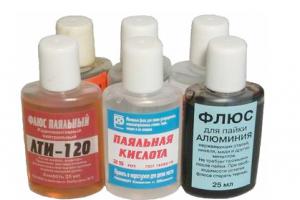.jpg) Birth control pills are an effective way to prevent pregnancy. However, they are only effective if taken correctly. This depends not only on the regularity of use, but also on the age of the woman taking birth control pills. Before choosing a drug, it is advisable to consult a doctor, and also pay attention to the fact that some tablets are used at a certain period of the menstrual cycle, and others daily.
Birth control pills are an effective way to prevent pregnancy. However, they are only effective if taken correctly. This depends not only on the regularity of use, but also on the age of the woman taking birth control pills. Before choosing a drug, it is advisable to consult a doctor, and also pay attention to the fact that some tablets are used at a certain period of the menstrual cycle, and others daily.
Let's look at how to take birth control pills correctly according to age. The amount of hormones in a woman’s body depends on age, in addition, the frequency of sexual intercourse, body weight and childbearing period.
Nulliparous girls under 23-26 years of age are advised to take medications with low hormone content. Janine, Marvelon, Regulon are suitable for these purposes. When taking them, hormonal levels are not disrupted, and by stopping taking the pills, a woman can become pregnant at any time. Minimum doses of such drugs create a special viscous environment in the uterus, which does not allow sperm to penetrate the egg.
There is a lot of debate about the age at which birth control pills can be taken. Such tablets cause certain harm to the body, especially affecting the liver and kidneys, disrupting metabolism and leading to obesity. But if you compare the harm from the fact that a girl becomes pregnant at 13, then it is minimal. It is important to correctly set goals in life and raise a teenager so that he does not have to take hormonal drugs from an early age. If a teenager takes such medications regularly from the age of 13-14 years, then he may have serious problems in the future, including infertility. The best way to prevent pregnancy at this age is a condom. Contraceptive drugs with low and medium hormone content are in some cases even recommended for use (usually over the age of 20). Such indications may include painful periods, malignant tumors of the genital organs, and menstrual irregularities. Drugs such as Diane 35 or Tri-Regol are prescribed for these disorders.
Every woman has different levels of the hormone, which can be determined by appearance. Since medications are produced on the basis of estrogen or progesterone, they can be selected depending on the deficiency or excess of the hormone.
At the age of 23-40 years, the doctor individually selects a contraceptive, depending on body weight, desire to have more children, and the results of hormone tests.
.jpg) High-dose contraceptives are used to treat hormone imbalances and other diseases - Ovidon, Non-ovlon. Such drugs are contraindicated for those who are still planning to give birth.
High-dose contraceptives are used to treat hormone imbalances and other diseases - Ovidon, Non-ovlon. Such drugs are contraindicated for those who are still planning to give birth.
After 40 years, a woman experiences dry skin, hair loss, and sweating due to insufficient production of the hormone estrogen. The doctor may prescribe medications with medium or low levels of it.
Any medication should be taken after consultation with a doctor, especially a contraceptive drug, the use of which is intended for every day. A correctly selected drug will fulfill its main function and minimize possible complications.
What is protein made from and what is it needed for? At what age can you take it without fear for your health?
At the present stage, young people are developing in the right direction, and more and more young people are giving preference to health and sports. No wonder. A beautiful body, a healthy mind, the attention of the opposite sex, an active rhythm of life, regular sex - all this brings more satisfaction than alcohol, cigarettes or, even worse, drugs.
But against the backdrop of interest in sports, many questions arise related to the relevance of taking sports nutrition. It is not always clear whether teenagers can take protein, at what age can they drink sports nutrition, how harmful proteins are for a growing body, and so on. As a result, there are more questions than answers. Let's put everything on the “shelves”.
What is protein?
Despite the abundance of information, many people mistakenly associate protein with steroids. In fact. These are different things. In the first case, we are talking about natural sports nutrition made from ordinary food products, for example, milk, whey, eggs, and so on. As for steroids, they are a synthetic product or, in simple words, “chemistry”.
The only peculiarity of the protein is that it is a concentrated composition of the same protein that is found in dairy products. Thanks to special techniques, the most useful components are literally “mined”, dried and turned into powder. As a result, the result of one spoon of protein can be equal to, for example, a kilogram of cottage cheese eaten. At the same time, scientists assure that protein can be taken by absolutely everyone without exception.
In addition, drinking a ready-made supplement is much more convenient, because all that is required is to mix it with liquid (water, juice, milk, etc.). If you regularly consume protein, you can forget about the lack of protein in the body. So the benefits are undeniable. The only question is, is it necessary to help a young body? Is it worth using sports nutrition before the age of 16-18?
Borders exist

Many guys don’t even think about the age at which they can drink protein. They just look at older guys and completely repeat their actions. Moreover, even the dosage of more advanced in sports and already adult guys is thoughtlessly duplicated. There are a lot of cases where boys of 13-14 years old actively “stuff” protein into themselves in the hope of seeing Schwarzenegger in the mirror. But is it necessary to make such “sacrifices”?
For most trainers, it is considered the norm to recommend sports nutrition to beginners, starting from 15-16 years old. In turn, manufacturers do not agree with this. As a rule, you can find the “18 years” restriction on protein packages. How do the coaches explain this? They claim that this figure is only reinsurance for the manufacturer in case of an emergency.
As for problems after taking them, they are possible only in the following cases:
- if you drink sports nutrition, regularly increasing the dosage;
- if you consume proteins yourself (and mix them with other additives)
- without the consent of a professional (it doesn’t matter how old you are).
How does the teenage body work?

To understand whether teenagers under 18 years of age can drink sports nutrition (in particular, protein), you need to clearly understand the peculiarities of how a young and growing body works. During this period, processes occur at an incredible pace. If you consume protein or other sports nutrition, your metabolism can be disrupted. In the future, the failure develops progressively, and a small “game” with sports nutrition can end, for example, in obesity at the age of 16. Of course, how much and in what volume the supplement was taken is of great importance, but the principle remains the same.
Many believe that taking supplements at the age of 13-16 can significantly accelerate muscle growth. In fact, everything happens the other way around. As we mentioned, disruptions may occur in metabolic processes. The body needs to act, and it directs all its forces to overcome the problem. As a result, resources are spent not on mass gain, but on struggle. The result is a weakened state, lack of energy and results. In the future, no matter how much protein enters the body, there will be no use. The reverse process, which we mentioned above, is also possible.
What's the result?

Despite the fact that proteins are sold on every corner, they must be consumed wisely. If you are under 18 years of age, you should not take supplements indiscriminately. Not because they are harmful (quite the contrary). It’s just that at this age you can try to use the body’s natural resources.
A young body does not need additional proteins- he gets everything with food. How much protein is needed? On average, it is recommended to consume about 1.5-2 grams per kilo of weight. But at the initial stage, the dosage can be made more loyal.
If protein intake is necessary to achieve sports results, then a specialist will help. He will tell you how much is better to take supplements, and at what age it is better to start.
What should professionals do?
It’s another matter if a young athlete chooses professional sports as his direction. In this case, it is difficult to do without help, because the daily dosage of the required protein doubles or even triples. Imagine how many eggs, cottage cheese and meat you will have to eat to cover the necessary reserves. To get sculpted muscles and achieve quick results, protein is not only possible, but also necessary to take. In such a situation, it is he who is the source of materials so necessary for the growth of muscle fibers
How to build muscle without sports nutrition?
If you are only 14-18 years old and do not have any professional goals, then you can build up muscles without sports supplements. All that is required is to follow a few simple rules:
- Don’t waste extra time on separate muscle work biceps or, for example, triceps. No matter how much you load individual muscle groups, it will give minimal results. It is worth paying more attention to basic exercises, for example, deadlifts, squats, bench presses, and so on. Deadlifts are often not favored, but it is with its help that you can achieve the growth of smaller muscles - the same triceps or biceps.
- To eat well . No matter how much you “kill” the body, you still won’t be able to get results without proper nutrition. It is necessary to eat the full amount of microelements and calories. The ideal option is to add porridge, fruits, chicken, vegetables, cottage cheese and even regular vitamins to your diet.
- Sleep . As a rule, many beginners do not know how much time they need to spend on sleep to achieve results. In fact, you need at least 8 hours of rest every day. If you don’t sleep normally at night, then your body simply won’t grow, and all your training will go down the drain.
Many people know that women taking COCs can easily postpone their menstruation to a more favorable time. At least 70% of them are aware of the option to delay their periods, and 30% have already used this option 1 .
You don’t want to ruin your long-awaited vacation or romantic date with bloody discharge. A business trip, sporting competition, upcoming exam, or some important event may also be reasons for a postponement.
Gynecologists, in turn, successfully use the prolonged regimen of COCs for medicinal purposes. It is necessary for women with chronic anemia, menstrual migraine, after treatment of abnormal uterine bleeding, endometriosis and severe PMS to live for some time without monthly bleeding.
A prolonged regimen of COCs should be recommended if treatment is carried out with drugs that reduce the effectiveness of COCs (antiretrovirals, phenytoin, barbiturates, primidone, carbamazepine, rifampicin, oxcarbazepine, topiramate, felbamate, griseofulvin and preparations containing St. John's wort).
Most patients easily agree to “postpone” menstruation for therapeutic purposes.
- It must be so. It's nothing you can do…
The question is, how right are women who seek to avoid menstrual-like reactions due to COCs because of a whim: a desire to swim in the sea, meet a loved one, enter a tiger cage, or take part in a bicycle race?
- Drink two packs without a break? But this is scary, harmful and dangerous! Is it possible to interfere with the natural cycle?
What about cycle disruption?
The menstrual cycle is called a cycle because the body of a healthy woman undergoes daily changes that are repeated cyclically. Approximately every 28 days. The main purpose of these changes is to prepare for pregnancy and get pregnant.
Changes during a 28-day menstrual cycle (without fertilization)
Menstruation is a report from the body: “Mistress, the pregnancy did not work out. I’m resetting all preparation and starting a new cycle.” Each day of a normal menstrual cycle is slightly different from the previous one. That is why, when assessing an ultrasound picture or examining a woman, the gynecologist must compare the picture with the day of the patient’s menstrual cycle.
There is no “natural” cycle when taking COCs. The even, monotonous intake of pills prevents the follicles from actively growing, reaching ovulatory sizes and bursting, releasing an egg into the world. Accordingly, the uterus is in a calm state and does not prepare a “warm welcome” for the fertilized egg. All days of taking the pills correspond to the early follicular phase and are similar to one another.
Bloody discharge in the hormone-free interval while taking COCs is essentially withdrawal bleeding, however, in order not to scare people with the word “bleeding,” gynecologists use the term “menstrual-like reaction.” Since no cyclical changes occur, it is possible to maintain the body in a peacefully dormant state for much longer than 21 days. After all, the body is illiterate and cannot count. No pills for several days - menstrual-like reaction. The body will give it out both if you accidentally miss several tablets in the package, and with a planned hormone-free interval.
“21 + 7” is already history

The cyclic regimen of taking COCs (drink for 21 days + rest for 7 days) was proposed back in 1961 by the creators of the first contraceptive pill, Gregory Pincus and John Rock. Firstly, women really should have “rested” from the enormous hormonal load. Each tablet of the world's first COC contained an amount of estrogen equivalent to 103 mcg of ethnyl estradiol (5 modern tablets!). Secondly, John Rock was a Catholic and hoped that if the pills mimicked a woman's natural cycle, the method would be approved by the Catholic Church.
For almost 40 years, the classic regimen of using COCs “21 + 7” was the only possible one, however, researchers and practitioners have accumulated a number of claims. It turned out that in every fourth COC user, in a 7-day hormone-free interval, the hypothalamic-pituitary system can “wake up” and begin to command, triggering the growth of follicles and the maturation of eggs. Some women experience renewed symptoms of PMS, pelvic pain, or deterioration in health.
The second major problem was the late start of new packaging. Almost 40% of women admit that the 7-day interval sometimes turns into 8 days and even 10 days. Such “delays” are already fraught with ovulation and unwanted pregnancy.
This problem was solved by proposing a new reception mode “24 + 4”. A hormone-free interval shortened to 4 days does not allow the body to “wake up properly” and demonstrates better tolerability and contraceptive effectiveness. Jess/Jes Plus (Dimia, Vidora micro, Modell Trend) and Zoeli are accepted in this mode today.
In the USA, the drug Seasonale has been registered for many years, containing a combination of 30 mcg ethnylestradiol and 150 mcg levonorgestrel for use in the 84 + 7 mode. This allows a woman to have 4 menstruation per year - winter, spring, summer and autumn.
“120 + 4”: real life without menstruation

Researchers carefully studied the safety of long-term continuous use of COCs - the frequency and severity of side effects for the classic and prolonged regimens turned out to be the same, but contraceptive effectiveness turned out to be higher among fans of “life without menstruation” 2.
The maximum duration of continuous use of COCs is currently 120 days, after which it is worth stopping for 4 days and allowing the body to reject the functional layer of the endometrium.
The main problem for women taking long-term COCs is breakthrough bleeding. Most often they occur in women taking the drug for the first 3–4 months, then their likelihood decreases. Scanty spotting is not breakthrough bleeding and does not require any activity. Breakthrough bleeding is usually more profuse, but is not accompanied by painful sensations; upon examination and examination, the doctor cannot find any obvious reasons.
Despite regularly taking the pills, pregnancy should be carefully excluded in such cases. If spotting appears while taking pills from the 25th to the 120th day, it means that the body is “telling” that it would be good to take a break right now. In this case, you should make a 4-day interval and continue taking the drug. It is this flexible prolonged dosing regimen that was officially registered in the Russian Federation in 2015.
Experts call the ability to postpone your menstruation the “second revolution” after the ability to plan the birth dates of your children. And parting words to gynecologists from specialists who have carefully studied the problem sound like this: “There is no medical or physiological reason to force COC-treated patients to have monthly withdrawal bleeding. Every woman who receives contraceptive pills should have the choice to reduce the number of periods or eliminate them completely. Don't assume she doesn't have menstrual problems just because she hasn't told you about them." 3
1.Management of the menstrual cycle: new opportunities. Innovations in contraception - flexible prolonged mode and digital dosing technologies: newsletter / M. B. Khamoshina, M. G. Lebedeva, N. L. Artikova, T. A. Dobretsova; edited by V. E. Radzinsky - M.: Editorial office of the magazine StatusPraesens, 2016. - 24 p.
2. Klipping C. et al. Contraceptive efficacy and tolerability of ethinylestradiol 20 µg/drospirenone 3 mg in a flexible extended regimen: an open-label, multicentre, randomized, controlled study // J. Fam. Plann. Reprod. Health Care. 2012. Vol. 38. P. 73–83.
3. Yureneva S.V., Ilyina L.M. Flexible regimen: “second revolution” in the use of combined oral contraceptives // RMZh. 2016. No. 6. pp. 298–303.
Oksana Bogdashevskaya
Photo thinkstockphotos.com
How long can you drink OK without breaks? and got the best answer
Answer from ***Nana***[guru]
I drank for several years and had no complications; I got pregnant right away without any problems. You need to donate blood from a vein once a year, I don’t know what the test is called, but the doctor will understand if you explain why
Answer from Moon[guru]
I drank for 2 months straight
Answer from Luman[active]
Six months is definitely possible
Answer from Black Magic[guru]
If you mean a 7-day break, then I would categorically not advise drinking more than 2 packs in a row, and in general it’s better not to “play around” like that.
Answer from Evgenia Sheveleva[guru]
Without taking breaks between packages - no more than 3 cycles.
Drink OK in cycles, “as expected”, without canceling them for a couple of months - it’s possible for a couple of years; You just need to take into account that with long-term use there may be suppression of ovarian function...
Answer from No doubt...[guru]
depending on what YOU mean. if you miss a week's break, that is, for example, you need to go to the seaside and you don’t want your menses to be interrupted, then no more than 2 packs in a row. and if you drink for how many years, it depends on your state of health. If, according to the tests, everything is normal and the general condition is in order, you can drink for years, again depending on which ones are OK, based on which hormone. The last word belongs to the doctor.
Answer from Wolf Rahm[guru]
until you burst!
Answer from Yatyana[guru]
without a break for 7 days no more than 3 packs
Answer from -Nusha-[master]
He prescribed me gynek for 6 months..
Answer from Lyudmila Chuchina (Solodovnikova)[guru]
I took it for 9 years, everything is fine (Logest) modern OCs are designed for long-term use, you can’t often take breaks because your body will only get used to a certain status (both breasts and ovaries) and you pull it off and then the instability of the mastopathy cycle begins (the doctor explained this to me ) I stopped drinking for 2 years, the cycle was normal, then I got tired of making do with improvised means and switched to Nuvaring, a great thing by the way, I don’t worry at all for 3 weeks))))
and if you mean how many packs they will tear up, then no more than 3
What is protein made from and what is it needed for? At what age can you take it without fear for your health?
At the present stage, young people are developing in the right direction, and more and more young people are giving preference to health and sports. No wonder. A beautiful body, a healthy mind, the attention of the opposite sex, an active rhythm of life, regular sex - all this brings more satisfaction than alcohol, cigarettes or, even worse, drugs.
But against the backdrop of interest in sports, many questions arise related to the relevance of admission. It is not always clear whether teenagers can take protein, at what age can they drink sports nutrition, how harmful proteins are for a growing body, and so on. As a result, there are more questions than answers. Let's put everything on the “shelves”.
What is protein?
Despite the abundance of information, many people mistakenly associate protein with steroids. In fact. These are different things. In the first case, we are talking about natural sports nutrition made from ordinary food products, for example, milk, whey, eggs, and so on. As for steroids, they are a synthetic product or, in simple words, “chemistry”.
The only peculiarity of the protein is that it is a concentrated composition of the same protein that is found in dairy products. Thanks to special techniques, the most useful components are literally “mined”, dried and turned into powder. As a result, the result of one spoon of protein can be equal to, for example, a kilogram of cottage cheese eaten. At the same time, scientists assure that protein can be taken by absolutely everyone without exception.
In addition, drinking a ready-made supplement is much more convenient, because all that is required is to mix it with liquid (water, juice, milk, etc.). If you regularly consume protein, you can forget about the lack of protein in the body. So the benefits are undeniable. The only question is, is it necessary to help a young body? Is it worth using sports nutrition before the age of 16-18?
Borders exist
Many guys don’t even think about the age at which they can drink protein. They just look at older guys and completely repeat their actions. Moreover, even the dosage of more advanced in sports and already adult guys is thoughtlessly duplicated. There are a lot of cases where boys of 13-14 years old actively “stuff” protein into themselves in the hope of seeing Schwarzenegger in the mirror. But is it necessary to make such “sacrifices”?
For most trainers, it is considered the norm to recommend sports nutrition to beginners, starting from 15-16 years old. In turn, manufacturers do not agree with this. As a rule, you can find the “18 years” restriction on protein packages. How do the coaches explain this? They claim that this figure is only reinsurance for the manufacturer in case of an emergency.
As for problems after taking them, they are possible only in the following cases:
- if you drink sports nutrition, regularly increasing the dosage;
- if you consume proteins on your own (and mix them with other additives) without the consent of a professional (it doesn’t matter how old you are).
How does the teenage body work?
- To understand whether teenagers under 18 years of age can drink sports nutrition (in particular, protein), you need to clearly understand the peculiarities of how a young and growing body works. During this period, processes occur at an incredible pace.If you consume protein or other sports nutrition, your metabolism can be disrupted.In the future, the failure develops progressively, and a small “game” with sports nutrition can end, for example, in obesity at the age of 16. Of course, how much and in what volume the supplement was taken is of great importance, but the principle remains the same.
Many believe that taking supplements at the age of 13-16 can significantly accelerate muscle growth. In fact, everything happens the other way around. As we mentioned, disruptions may occur in metabolic processes. The body needs to act, and it directs all its forces to overcome the problem. As a result, resources are spent not on mass gain, but on struggle. The result is a weakened state, lack of energy and results. In the future, no matter how much protein enters the body, there will be no use. The reverse process, which we mentioned above, is also possible.
What's the result?
- Despite the fact that proteins are sold on every corner, they must be consumed wisely. If you are under 18 years of age, you should not take supplements indiscriminately. Not because they are harmful (quite the contrary). It’s just that at this age you can try to use the body’s natural resources.
What should professionals do?
- It’s another matter if a young athlete chooses professional sports as his direction. In this case, it is difficult to do without help, because the daily dosage of the required protein doubles or even triples. Imagine how many eggs, cottage cheese and meat you will have to eat to cover the necessary reserves. To get sculpted muscles and achieve quick results, protein is not only possible, but also necessary to take. In such a situation, it is he who is the source of materials so necessary for the growth of muscle fibers
How to build muscle without sports nutrition?
- If you are only 14-18 years old and do not have any professional goals, then you can build up muscles without sports supplements. All that is required is to follow a few simple rules:
- Do not waste extra time on separately working the biceps or, for example, triceps muscles. No matter how much you load individual muscle groups, it will give minimal results. It is worth paying more attention to basic exercises, for example, deadlifts, squats, bench presses, and so on. Deadlifts are often not favored, but it is with its help that you can achieve the growth of smaller muscles - the same triceps or biceps.
- To eat well. No matter how much you “kill” the body, you still won’t be able to get results without proper nutrition. It is necessary to eat the full amount of microelements and calories. The ideal option is to add porridge, fruits, chicken, vegetables, cottage cheese and even regular vitamins to your diet.
- Sleep. As a rule, many beginners do not know how much time they need to spend on sleep to achieve results. In fact, you need at least 8 hours of rest every day. If you don’t sleep normally at night, then your body simply won’t grow, and all your training will go down the drain.
The young body does not need additional proteins - it gets everything with food. How much protein is needed? On average, it is recommended to consume about 1.5-2 grams per kilo of weight. But at the initial stage, the dosage can be made more loyal.
If protein intake is necessary to achieve sports results, then a specialist will help. He will tell you how much is better to take supplements, and at what age it is better to start.
Look in our section








